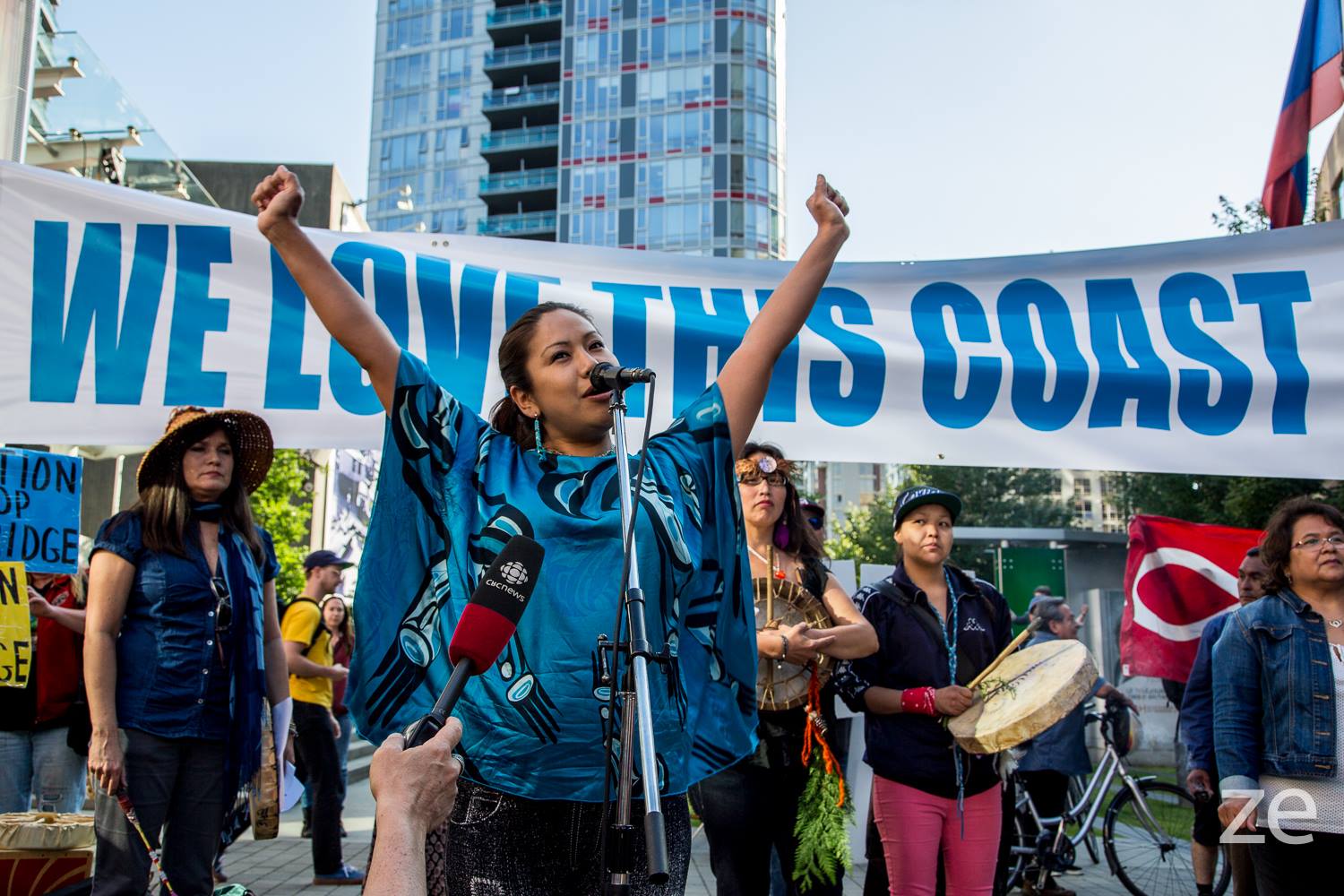The provincial government did not fulfill its legal obligation to consult with First Nations on the Enbridge Northern Gateway pipeline, the B.C. Supreme Court ruled Wednesday.
The case, brought forward by the Gitga’at and other coastal First Nations, argued the province erred when it handed over decision-making authority for the project to the federal government under a provincial-federal Joint Review Process managed by the federal National Energy Board.
B.C. granted Ottawa authority over the project’s environmental review in a 2010 equivalency agreement. That agreement, however, did not release the province from the legal duty to consult First Nations, the B.C. Supreme Court found.
“It’s a very significant ruling,” Elin Sigurdson, lawyer with JFK Law, said. “The coastal First Nations and Gita’at were very successful in the application to quash the equivalency agreement which means the province now has to consult with First Nations that will be affected by matters in the provincial jurisdiction and has to conduct a new environmental assessment for the project.”
In December 2013 a Joint Review Panel recommended the federal government approve the pipeline, slated to carry 525,000 barrels of oilsands crude to the B.C coast each day, subject to 209 conditions, one of which was “consultation with aboriginal communities.” Federal cabinet approved the pipeline in June 2014.
Greg Rickford, former Natural Resources Minister under the Harper government, suggested at the time that the duty to consult with First Nations resided with Enbridge.
“The proponent clearly has more work to do in order to fulfil the public commitment it has made to engage with aboriginal groups and local communities along the route,” Rickford said in a government press release.
“The duty to consult as a constitutional obligation does not lie with Enbridge,” Sigurdson said. “The Crown always has to ensure that the duty to consult was discharged in a meaningful way.”
Heiltsuk Chief Marilyn Slett said the ruling is a “great victory.”
“We’re feeling really good about it,” she said. “We’re just so committed to our community and protecting our coast.”
“It’s affirming to know that there’s a responsibility to come back and talk to the people these kinds of projects will affect.”
Slett said the government acknowledged the need to address First Nations concerns in Premier Christy Clark’s five conditions for oil pipelines.
“In terms of the government saying they are doing what they are supposed to be doing, well today shows [Christy Clark] has to be held accountable, to consult with us.”
“We stand our ground, around protecting who we are as people and our communities. This strengthens all of us,” she said. “We’re in it together.”
Susan Smitten, executive director of RAVEN Trust, said the ruling will mean major delays for a project that is already mired in uncertainty.
“All the coastal nations that will be affected by components within B.C. jurisdiction will have to be consulted, which will take time,” she said. “An environmental assessment would also take time.”
She added her organization is delighted with today’s win. “This is what we live for: to see Indigenous Peoples successfully see their issues through the courts.”
In September the B.C. Environmental Appeal Board ruled B.C. handed out scientifically flawed long-term water withdrawal permits to Nexen, a company with fracking operations in northern B.C.
The board found B.C. failed to properly consult with the Fort Nelson First Nation when issuing the water licence and ordered its cancellation, effectively immediately. The board also ruled B.C. failed to operate in good faith with the Fort Nelson First Nation and that the province’s consultation process was “seriously flawed.”
According to Sigurdson, the province may need to change its approach to consultation.
The province should have ensured the equivalency agreement met the needs of First Nations that stood to be affected by the Northern Gateway pipeline, she said.
“They were supposed to have consulted and it was not honourable for them to not do that.”
Consultation “has to mean something,” Sigurdson said. “It’s an obligation grounded in a solemn constitutional promise to preserve and protect the aboriginal rights of First Nations in Canada.”
“It can’t just be window dressing,” she said.
“It has to be real and meaningful dialogue. You can’t just have pretend consultation stand in the place of performing the actual obligation of giving information, hearing concerns and responding to them — actually engaging the concerns. “
“If you’re not doing that, you’re not doing the consultation required.”
Image: Mandy Nahanee, member of the Squamish First Nation at a rally, June 2014. Photo: Zack Embree.
Subscribe to our newsletter
Stay up to date with DeSmog news and alerts







